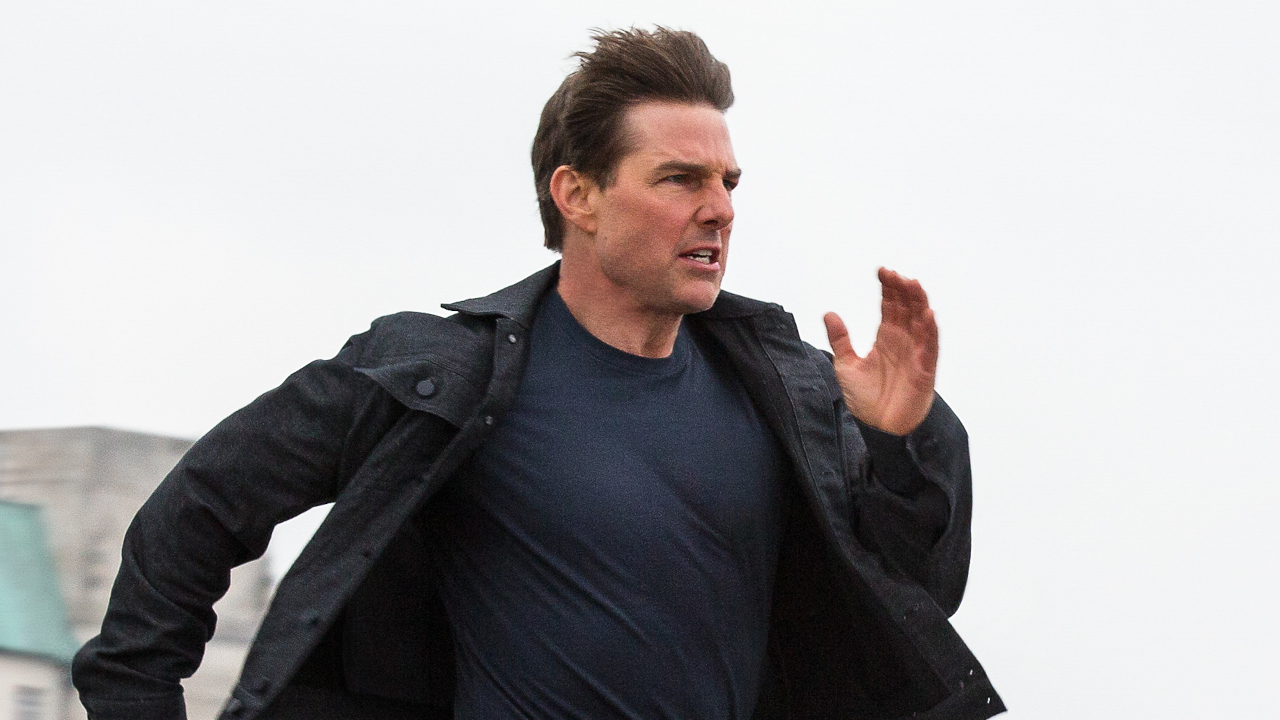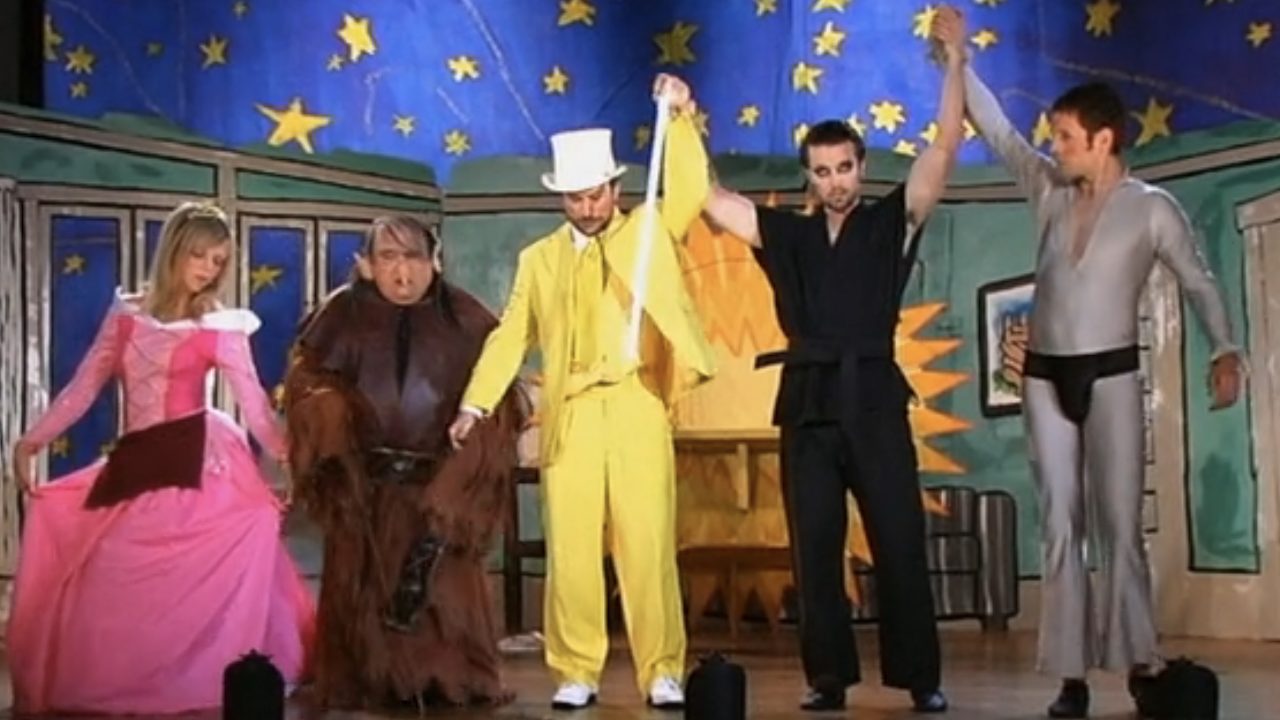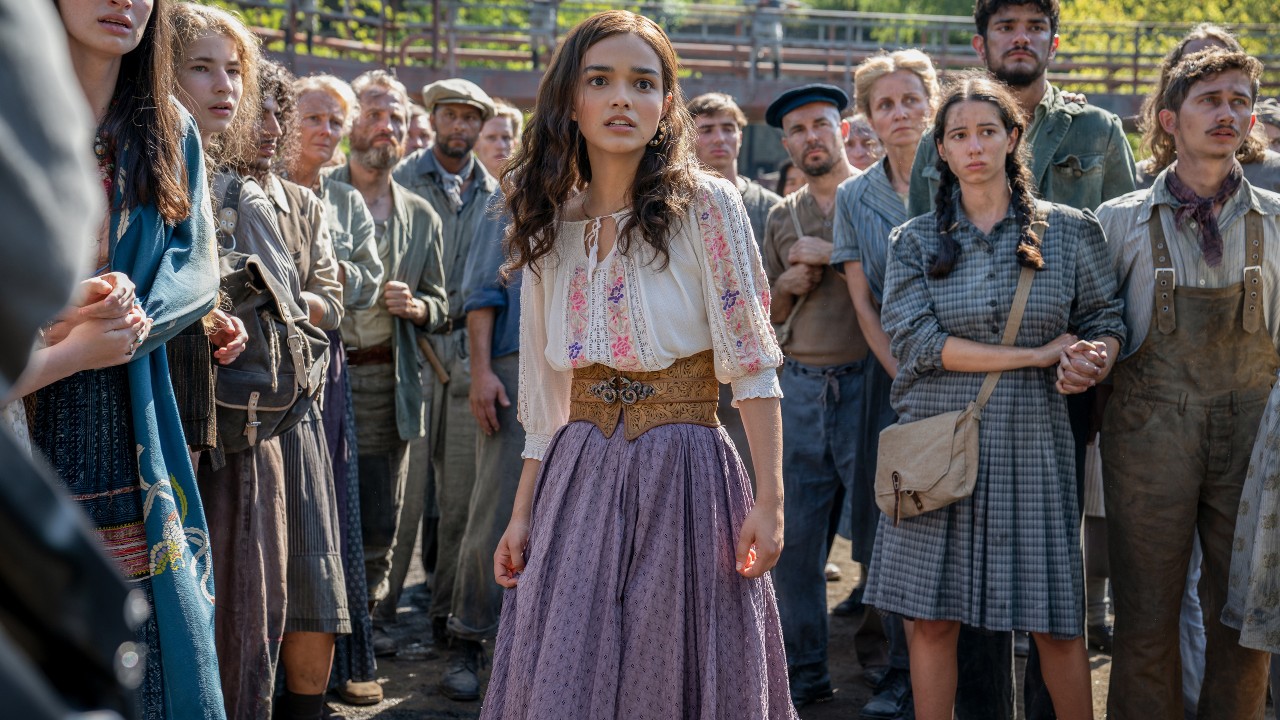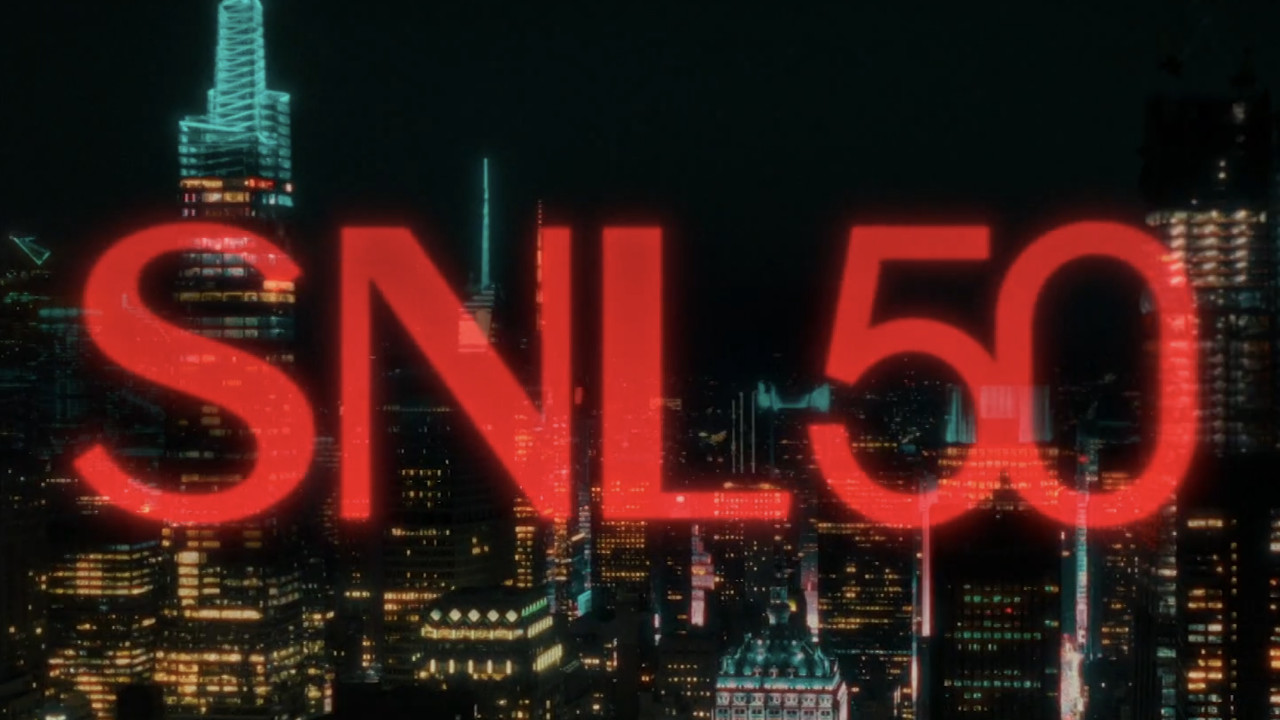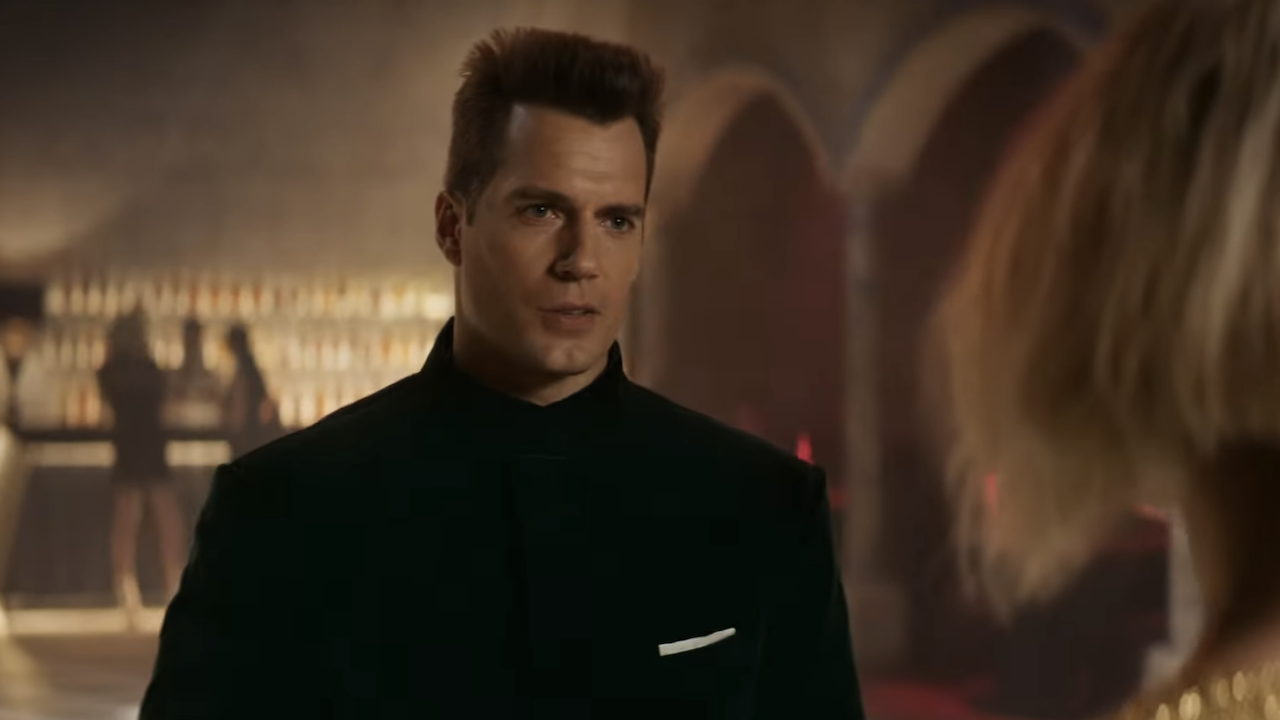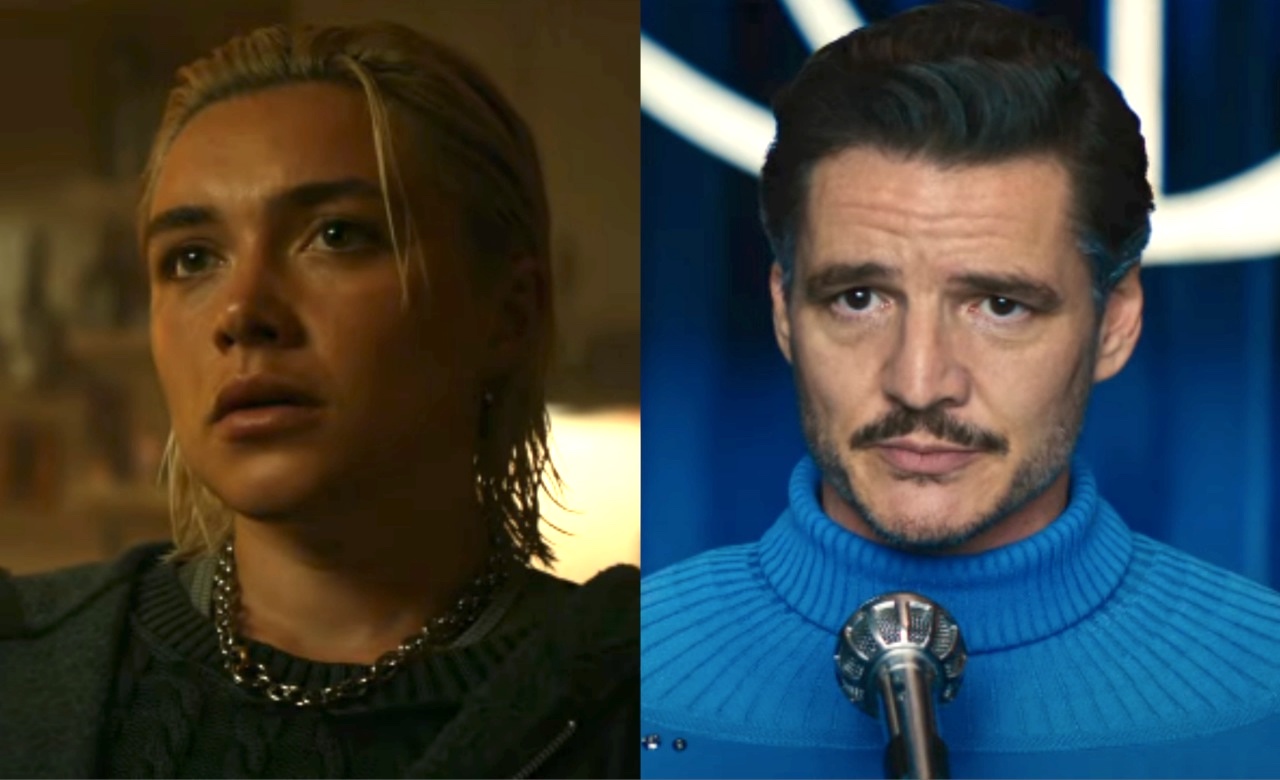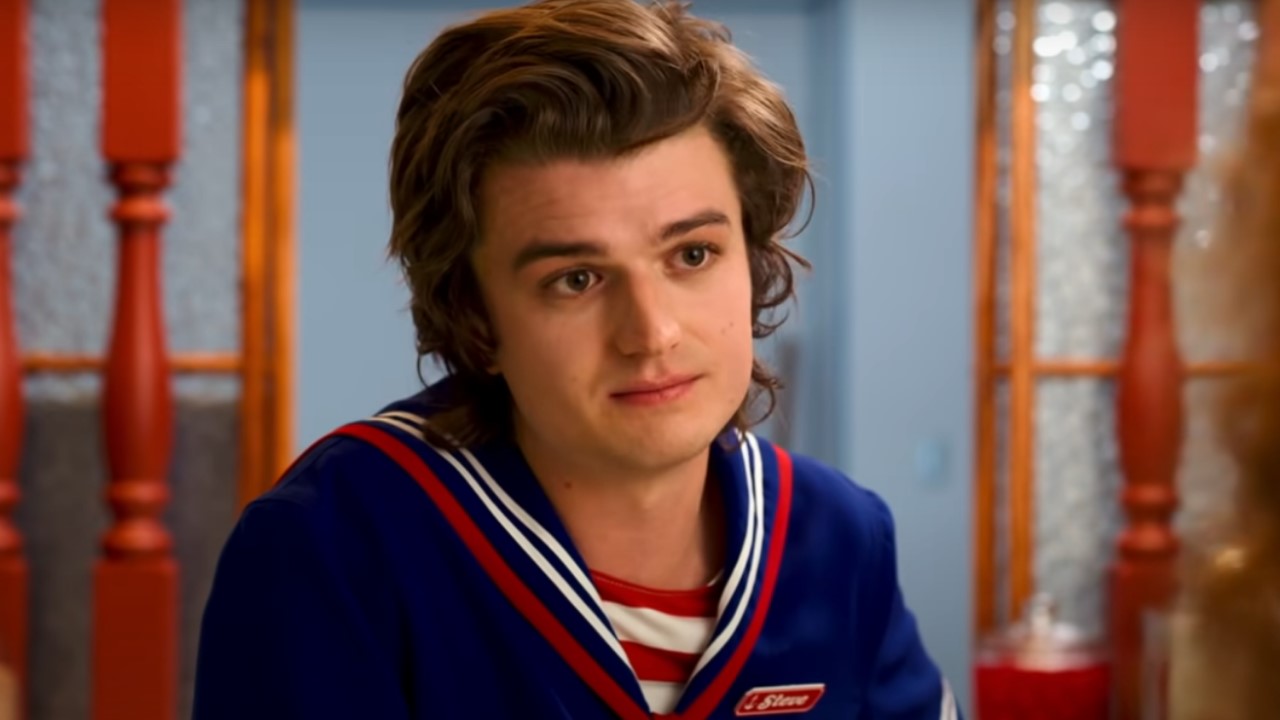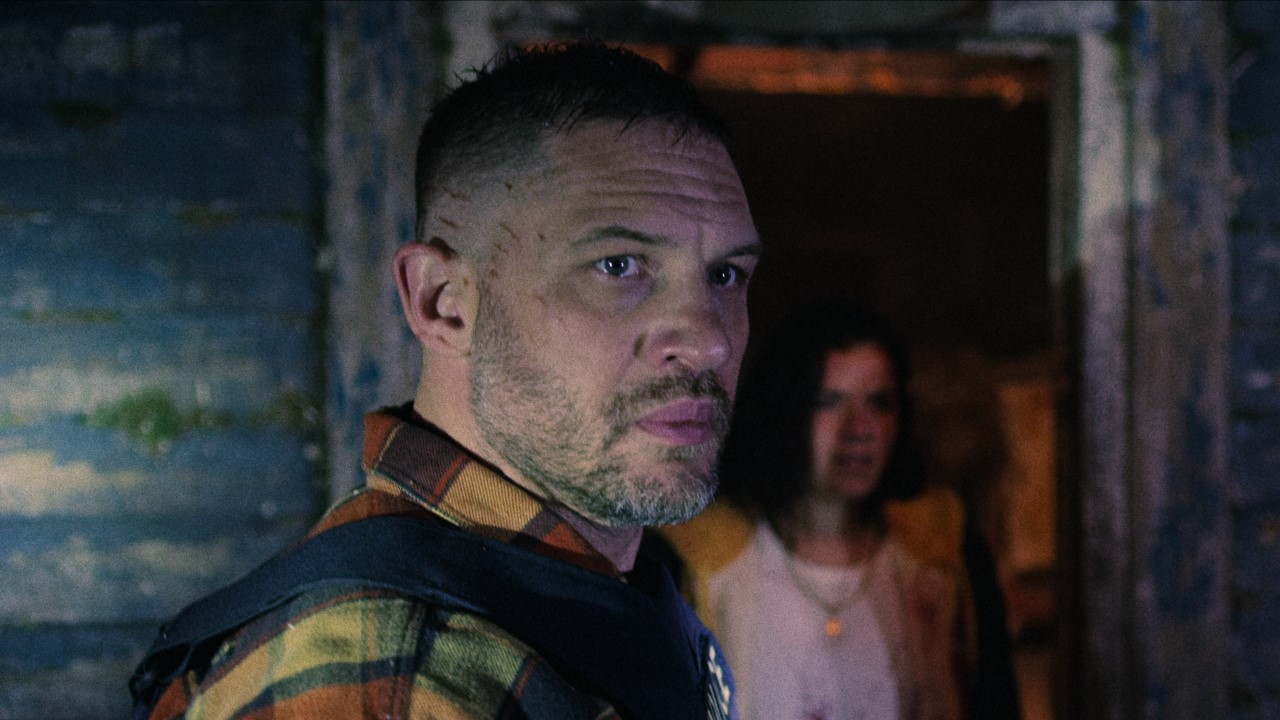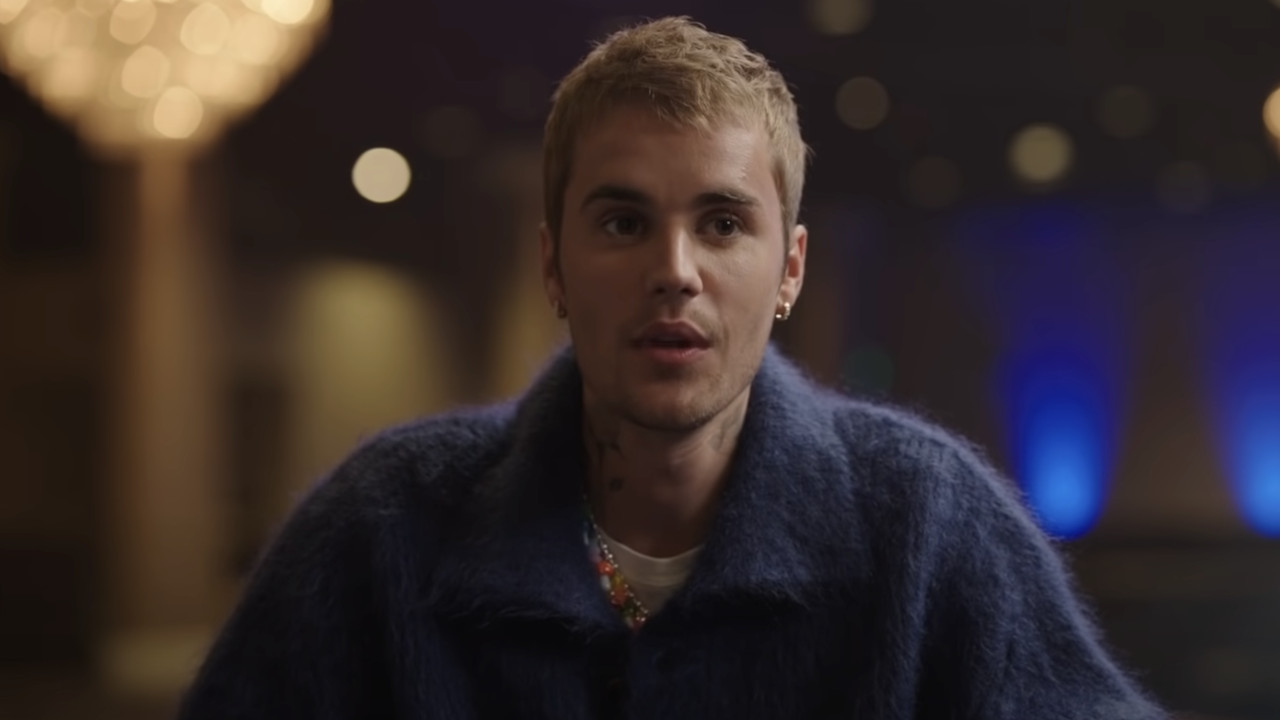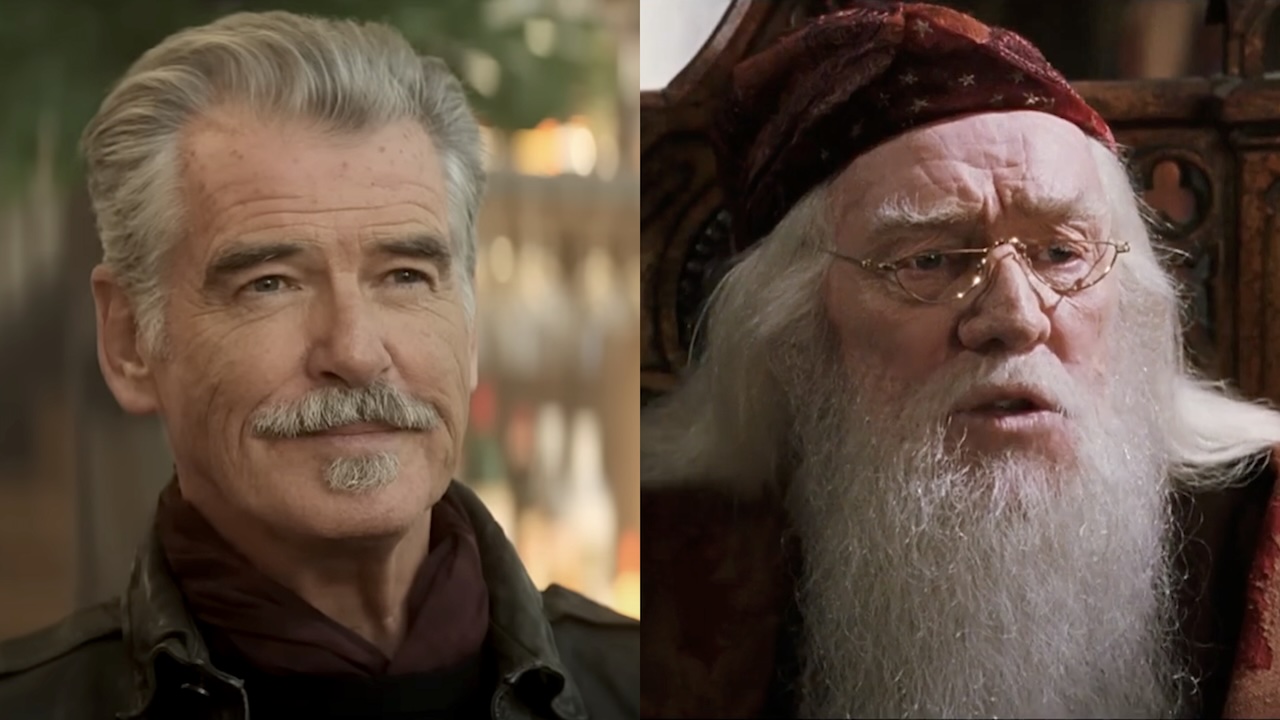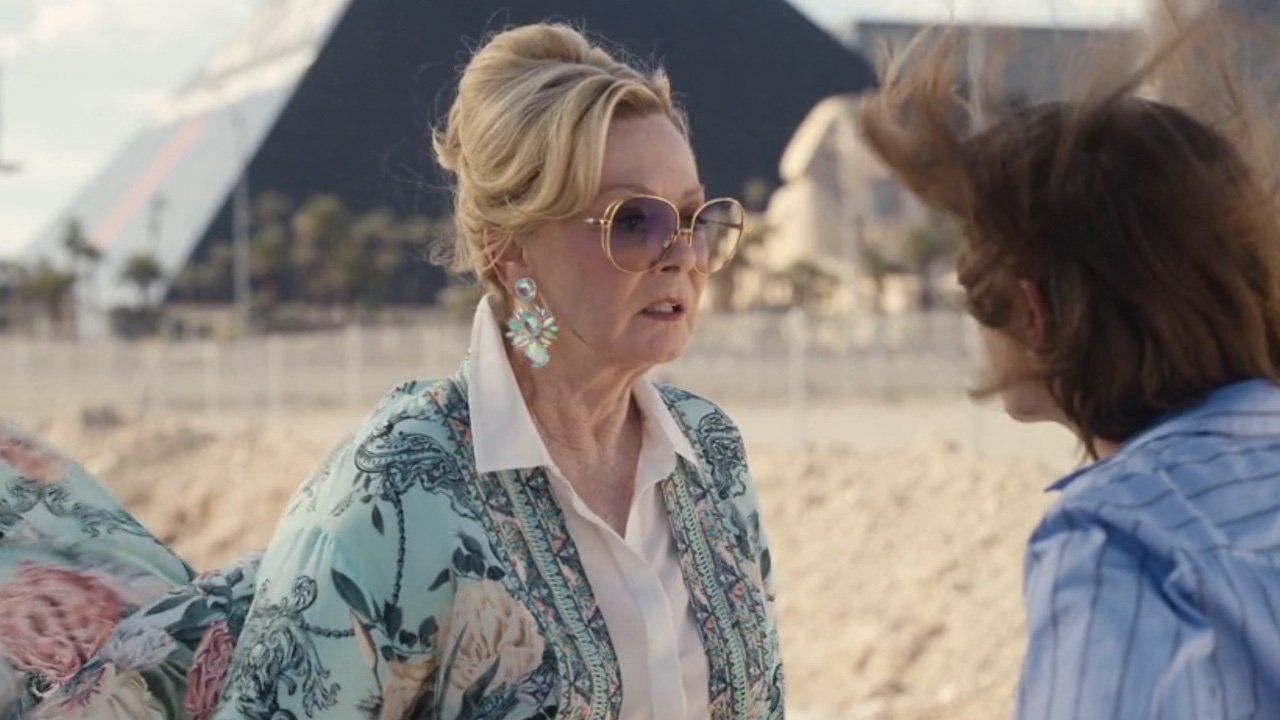Interview: The Next Three Days Writer-Director Paul Haggis
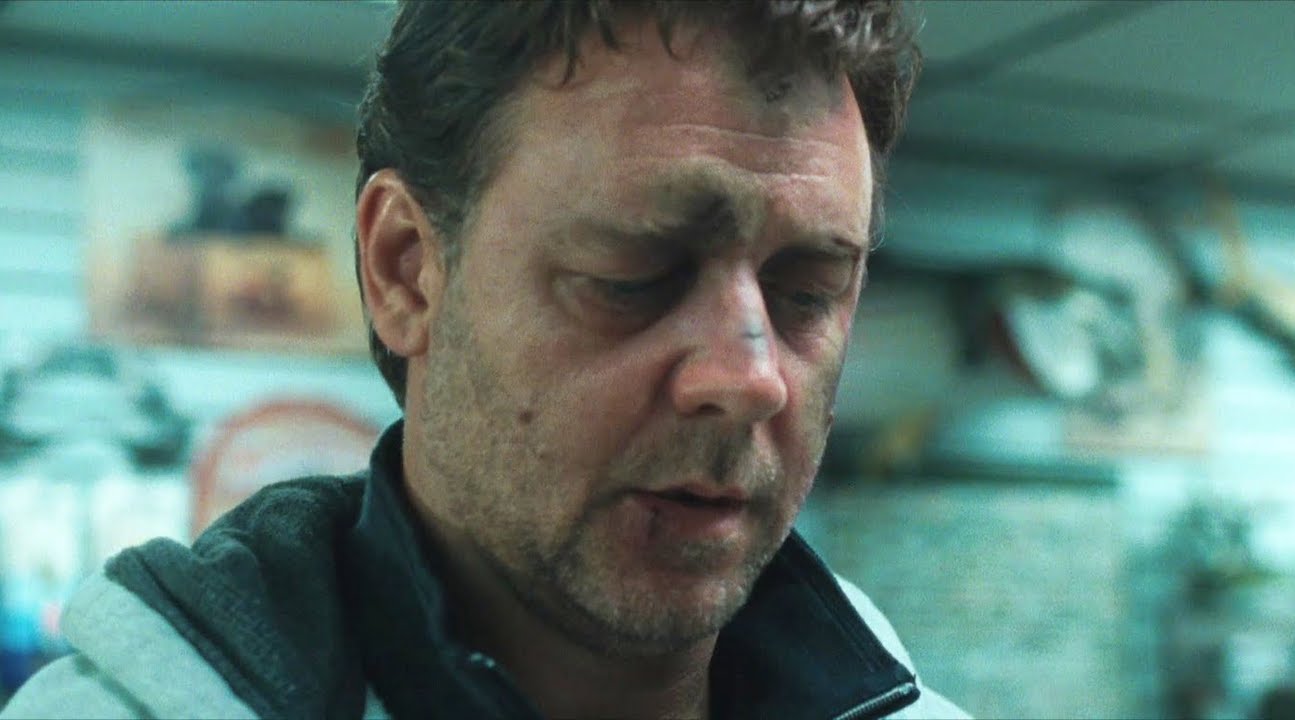
Life is good for Paul Haggis. Not only does he have two Oscars sitting pretty on his shelf, but he’s got three other nominations in the bag and his career continues to flourish. Ever since his shift from TV to film Haggis has almost only delivered critically acclaimed work. First was Million Dollar Baby and then Crash followed by The Last Kiss, Casino Royale, In the Valley of Elah, Quantum of Solace and now The Next Three Days.
The film stars Russell Crowe as John Brennan, an English teacher who’s separated from his beloved wife (Elizabeth Banks) when she’s arrested for murder. Convinced she’s innocent, John devotes himself to getting her out. However, what starts out as a lawful venture turns into a daring plot to defy the system and help her escape.
The Next Three Days isn’t your typical thriller. It does offer a fair amount of action, but it’s really a character driven drama more than anything and that’s exactly what Haggis intended it to be. While promoting the film for its November 19th release, Haggis sat down to tell us all the details from developing his script from the original film, Pour Elle, to locking down locations, working with Crowe and Banks and much more. He even took the time to address the never ending Crash saga. Check out all of that and much more in the interview below.
I’m sure you have your choice of projects to take on, so why The Next Three Days?
I’ve always wanted to do a thriller. I’m a filmmaker and I was most influenced by Hitchcock’s films. How he could plant such deep enriched characters and then make us care both about the antagonist and protagonist was masterful. I’d also loved films like Three Days of the Condor where Sydney Pollack was able to manipulate us into caring about these two people who shouldn’t be together and yet pulling you into a thriller. So I thought, that would be a lot of fun for me and then I saw this little film and it was very slight, it was like an 84 minute film, but had great balance and so I thought it asked the question it didn’t have time to fully explore and I figured I could ask my own questions about it.
Did you stick closely to the story of the original French film Pour Elle?
The format is the same. There are a couple of places where the shots are the same. I tried to do something different, that filmmaker just did a better job, so I said, ‘I’m going to go with him,’ but it was just a couple. There are signposts all the way through that are exactly the same, but then my film is two hours and ten minutes, theirs is 84 minutes, so there’s a lot more stuff in it.
CINEMABLEND NEWSLETTER
Your Daily Blend of Entertainment News
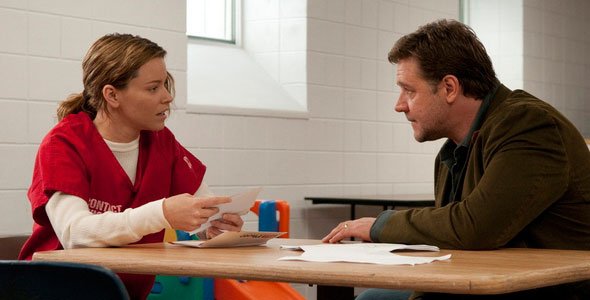
Did you write it with Russell Crowe and Elizabeth Banks in mind?
I don’t do that. I never write thinking of an actor because I think it ruins your chance of getting that actor because you’ve naturally written for something they’ve done before. You can’t help it because you’re not writing for that person, you’re writing for performances you’ve seen and what impressions you have of them. So, no, I try to just push them away and just write the characters and then, as soon as I’m finished, then I like to cast them. Russell was at the top of my short list, went to him, he said yes and then we did an audition process to find the girl. Russell was very strong in the fact that it worked very well for A Beautiful Mind; they went out, they found Jennifer [Connelly] during the audition process, so we did that and Elizabeth stole the day.
How was it working with them? Did they have any specific methods that called for you to work with them in particular ways?
Russell was so respectful of the process and I was concerned going in. Russell Crowe, I’d heard all the stories, right? I asked him about them and I was very frank with him from the beginning. We had an honesty that really cut through all the bullshit. I am a great admirer of him as an actor and I often know that when folks have a reputation, it’s usually nothing about the work. It’s usually for something else and so I wasn’t afraid. I was a little hesitant when I first met him, but he quickly put me at ease, he made me a steak in his backyard, talked and then from that point on it was a mutual respect. It wasn’t necessarily easy at the beginning because we would both test each other, but then very quickly we learned we could trust each other and we’re both very very confident people. In his case, for good reason, mine, completely unmerited, but I happen to be and so I don’t mind being challenged. I like being challenged because it makes the work better. So we had that where I could easily challenge him, he could challenge me and if he came up with an idea that I thought was great I would use it and if he didn’t I would say, ‘No, no,’ and he’d respect that. It worked out really well. I’m looking forward to working with him again.
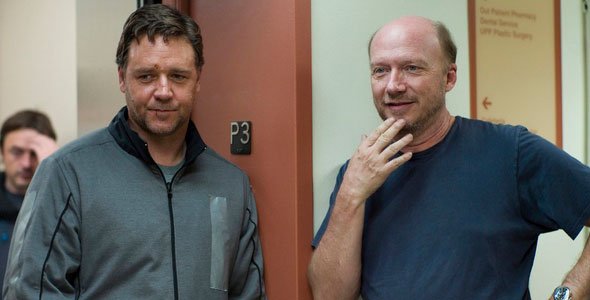
What about Elizabeth? Most people know her for her comedic work.
I think Elizabeth was probably a little scared to do this; you’d have to ask her. When people are scared they tend to be a little over confident at times. So I think it took her a day or two to shake down, but she’s a really skilled actress. A lot of the times you just have to trust yourself and she pulled it off as soon as she realized that I trusted her and she learned to trust me. There’s always that dance with actors to get them to trust you when they don’t. So she learned to do that; she relaxed and started doing some really good work.
People will likely go into this thinking it’s a thriller, but so much of the suspense comes from their performances and the relationship between their characters.
Exactly and that’s what the great films from the 40s through the 70s did; they took the time to invest in the characters and everyone when I was making this movie said, ‘Oh, it’s got to go fast. It’s got to go fast. Things have to happen.’ I said, ‘No they don’t. Sorry, it’s not the film we’re making.’ This is a film that’s going to get you to invest in these characters and care so when they run, you’re going to care that they’re running and when they jump into a car, you’re going to care that it starts and it’s not just one thriller after another that you sit back and go, ‘Oh, cool. Look at that CG.’ No, I want to be inside the character. I want you to sweat when this character’s sweating. So that’s what I was hoping to accomplish.
How’d you go about casting the secondary characters? They’re very minor roles compared to your leads, but you managed to secure some pretty impressive talent.
I was so lucky to pull this together because I knew I needed a really terrific supporting cast, but so many people only have one scene. It’s impossible to get great actors to play one scene! These people have egos! Well, apparently not because I would say, ‘Well, we’re not going to get Brian Dennehy. There’s no way. He’s got seven scenes, three lines.’ I called him and he said, ‘Yeah, I’ll do it.’ I said, ‘Really?’ He said, ‘Yeah.’ [Laughs] I spoke to him two days ago. I said, ‘[You’re] getting such great reviews,’ and he said, ‘Really? Paul, I had three goddamn lines! What are they talking about?’ [Laughs] His presence, he’s such a strong presence so he breaks your heart in that scene where he says goodbye because you really care and you need to find actors to pull that off. Liam Neeson, he was in the middle of shooting another movie. He was off doing The A-Team in Vancouver. I was shooting in Pittsburgh. I knew I wouldn’t get him, but I called him because I knew him and he said, ‘Love it, love to do it. I’ve got two days off next week. I can assure you one day. I’ll fly in do it,’ and I said, ‘Yes, I can do that.’ And so we shot seven pages in one day. You needed someone who had that moral authority as an actor and as a character. We did that with RZA, with Daniel Stern, with Moran [Atias], with a lot of terrific actors doing one great scene for us.
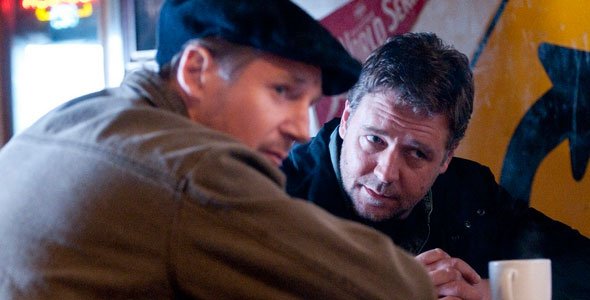
You know who stuck out to me? Jonathon Tucker.
Isn’t Jonathon great?
He plays such a bad guy in the beginning, but towards the end you actually feel sorry for him.
Exactly. I love those. You set somebody up one way and then you make them empathize. It’s just what Hitchcock did. He made you care for the villains. In Strangers on a Train in the scene that the villain is going to plant a key at the fairground and he drops the key down the grate, you’re going, ‘Thank god,’ and then you see him squeezing his hand down, ‘Don’t get the key. Don’t get the key,’ and I remember I’m very young I was watching this going, ‘Don’t get the key,’ and suddenly he got it and I went, ‘Yes! [Gasp] I just rooted for the villain.’ He was a wonderful manipulator like that so I always kept that as a lesson. You have to surprise people; you have to show your characters as being dynamic as multifaceted.
What was the pre-production stage like? You set the film in Pittsburgh. Was there a reason for that? Did you know you could have a prison and hospital to shoot in?
No, no, I didn’t know if we would. I found the geography that I wanted and how close to borders, how close to airports, how you could go in any direction. It wasn’t Chicago, it wasn’t New York, Seattle, LA, something that we’ve seen and is iconically American. I wanted you to really feel like this could happen any place, to anybody and I figured Pittsburgh has a really good shot the way I think it could be. Once I found out that everything worked for me there and then walked it through. I do this in the place I want to shoot. And they had great taxes there, which was great because we could actually afford to shoot there.
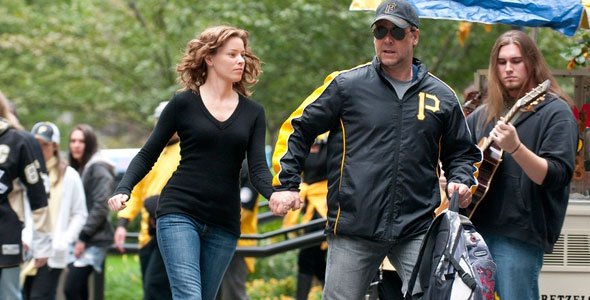
Were there any locations you wanted to include that you couldn’t get or maybe just didn’t work out the way you’d hoped?
No, they all worked well. The difficulty is shooting with moving trains. You’re shutting down the real T Train System; that was challenging, but they were great. They worked with us, we shot over several days, a few hours a day when it’s not peak rush hour. In the jail it was hard because you’re working around a live jail, a working jail, the largest jail in the world. It wasn’t easy, but they were wonderful to us. We used a lot of the actual prison guards and they brought a level of reality.
I’d imagine that’d make your actual actors’ performances more authentic as well, especially in Elizabeth’s case, here character being in prison for most of the film.
I let people do their own research. I don’t force them to research. You want to learn about the role? Go over there; learn it and that’s what Elizabeth did. I made is possible for her to get into the prison and possible to talk to prisoners and then how much time she wanted to spend was up to her.
And you did a lot of research yourself because you had to put together this whole breakout plan and it had to be sensible.
[Laughs] That’s my job!
Did you just come across that video on how to make a “bump key” and think it’d fit perfectly?
I found out how people tried to break out of the prison and one way was going through the elevator and somebody had gotten a key from one of the guards and so I said, ‘Oh, that’s too easy. I wonder if he can make a key for this. How do you do that?’ So I Googled it and I learned how to make a bump key. We created that video [in the film], but you can find videos about how to make a bump key. There’s four or five of them.
You’ve had such a successful career. Does the pressure to continue to deliver ever overwhelm you? Is it daunting to be able to keep the work up?
Yes, but it’s not what people think, ‘Oh, you have to go for your next Oscar,’ because you can’t plan for shit like that. You can’t plan for people to like your movies. I knew that people were not going to run in droves to the theater for the In the Valley of Elah. I knew they might not want to see it, but I still had to the movie; I felt very strongly about it. Wanting to keep telling a good story is what you want to do, a compelling story. That’s what our job is. If actors or others get recognition because of it, that’s great, but you want to tell a powerful story.
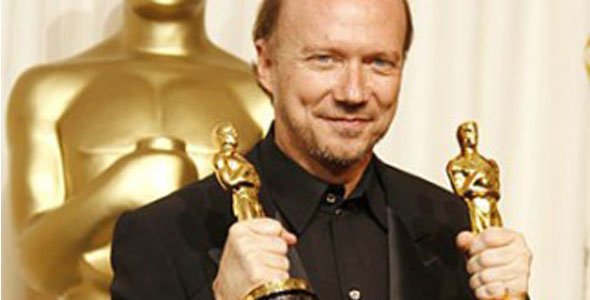
What’s it like for you handling Crash at this point with people still talking about the post-Oscar backlash? It’s one thing to make a bad movie and have people criticize it, but it must be different to make something and have it well received and then all of a sudden have people turn on it.
Well, two things happened. First of all, it’s an independent film, $6.5 million, then suddenly, when it got the Oscar attention, it became a big Hollywood movie and I’m going, ‘I’m sorry, were you on the set of a big Hollywood movie? Are you out of your minds?’ [Laughs] You’re talking about race and intolerance in Los Angeles, a big Hollywood movie, yeah, okay, good, that’s why it took me four years to make. So, yeah, you let that go. People are idiots.
But the other thing I saw is how people have to make themselves feel smart and smarter than the filmmaker. Well, I’m not the smartest guy in the world, but I certainly knew I was dealing with stereotypes. I don’t know if Crash is a good movie or not because I didn’t set out to make a movie. Really what I wanted to do is more of a social experiment. I was really upset. I just thought about myself and my preconceptions about people and the way that I judged people and I was also upset about the friends I’d see who’d done things that were in that film. It was really bothering me living in Los Angeles and so I said, ‘I wonder if I could do this.’
It was also after the first Iraq war. All of my good liberal friends were saying, ‘We have to invade.’ They’d say, ‘He’s a terrible, terrible villain.’ Well, I’m sure he is. He gasses some people. We did get him that gas, but he did all the stuff. But why him? Why invade this country and not let’s say some of the countries with dictators we support? Why? Because he looks like a villain. His swarthy dark skin, he has pock mark skin, he has a big mustache; looks like a villain. We judge people by the way they look, especially if their skin looks a little different than ours.
So I said, ‘Hm, I wonder if I could do this. I wonder if I can do a movie which reinforces all your preconceptions.’ I’m going to sit you in the dark, I’m going to tell you everything you already secretly know, all those stereotypes, I’m going to reinforce them. This person does that, that person does this, all these different things, that’s exactly what – Shh, it’s okay, you’re in the dark. No one’s going to challenge you. It’s fine. So I set up all of these stereotypes right at the beginning and then I said, ‘Now watch this. Watch me just fuck with you,’ [laughs] and I just one at a time made you question every single thing you knew about those characters until, hopefully, you left spinning.
So I don’t know if it was a good movie, but I know it was a good experiment because people literally walk out saying, ‘The movie just changed my life. I just started thinking differently. I just started dealing with my housekeeper differently,’ whatever. So whether that lasts for more than a minute I don’t know, but it challenged people, so that, I guess, is a good film. But for people to feel all superior to suddenly realize that I wrote stereotypes, it’s laughable to me. ‘Duh! I didn’t see it for myself? Thanks you for point it out.’ [Laughs] You know? Of course it is. But also they say that’s all I write. My long history of television, Easy Streets and all of these shows, which I was allotted for writing such detailed and subtle characters and then suddenly, oh, I just write stereotypes. Okay, you judge me anyway you want. I don’t give a shit. I just find it funny that people have to feel superior somehow to others. That’s what they do.
As far as winning best movie, I didn’t think it deserved to win best movie. I was a big fan of the other four films that year, huge fan. I was so honored to be a part of it and just to meet those filmmakers. It was a great experience for me! So, I think it’s a ridiculous thing judging one film better than the other and certainly ridiculous to judge our film better than those films, but I didn’t make that judgment, others did.
Well, you certainly left your mark on this industry!
Yeah, and I got two Oscars and they’re really cool on my shelf! They’re great! I was nominated five times in three years. How fortunate is that? Wow, what a ride! If I never get nominated again, I don’t care. That was so cool because each time you’re nominated, the cool thing is you get to meet those filmmakers. You get to meet those people who do wonderful work and for me, a guy who was just a television guy who had been making movies for six years, that’s it, to get into this place where I get to hang out with folks like that, it’s such a gift.
Staff Writer for CinemaBlend.

